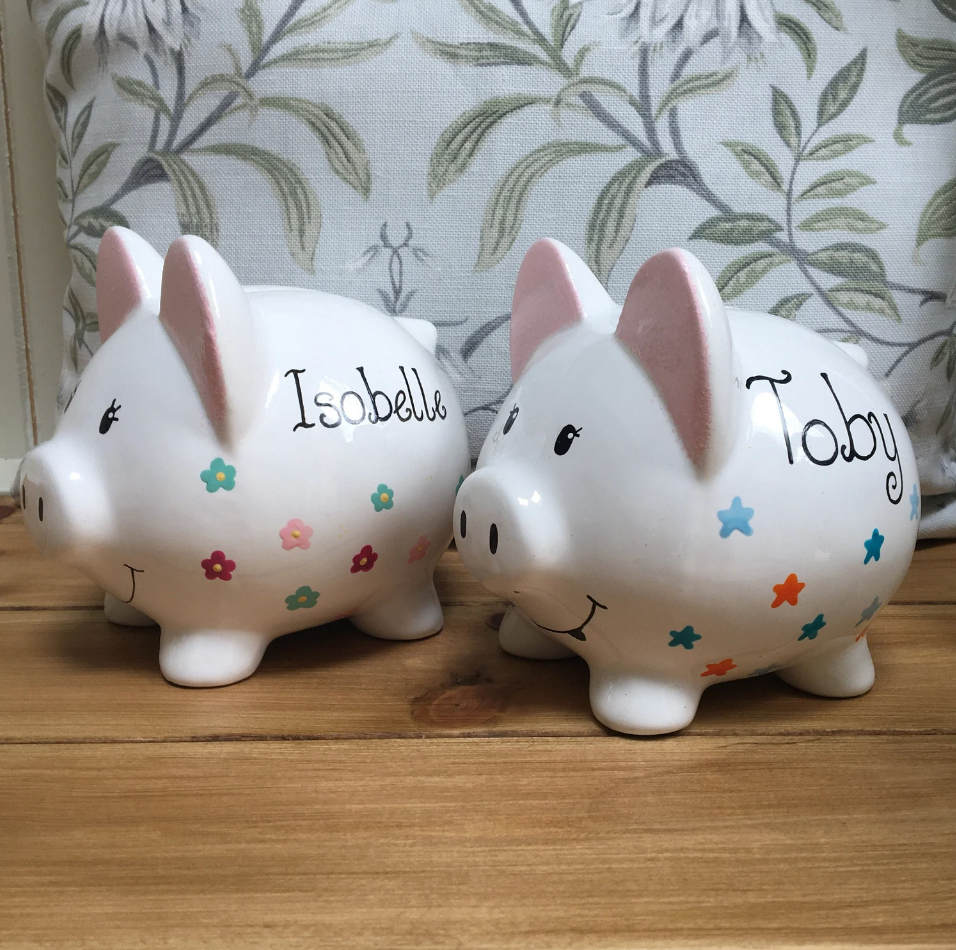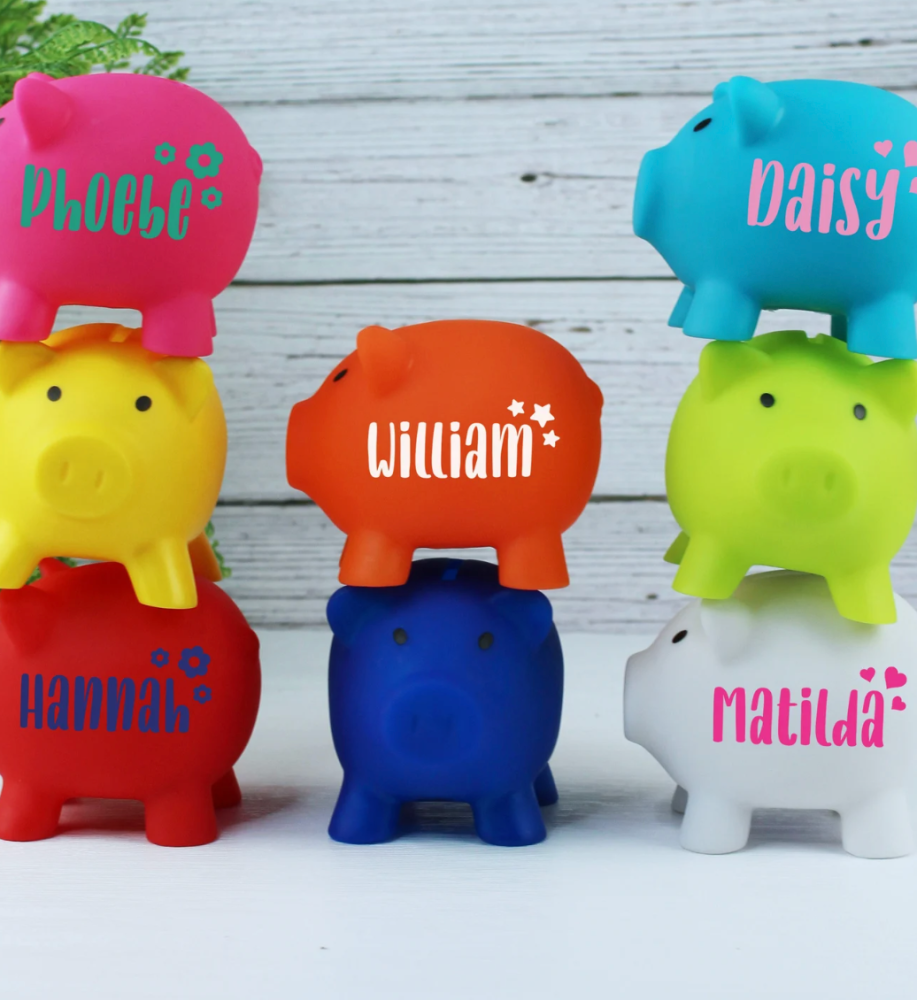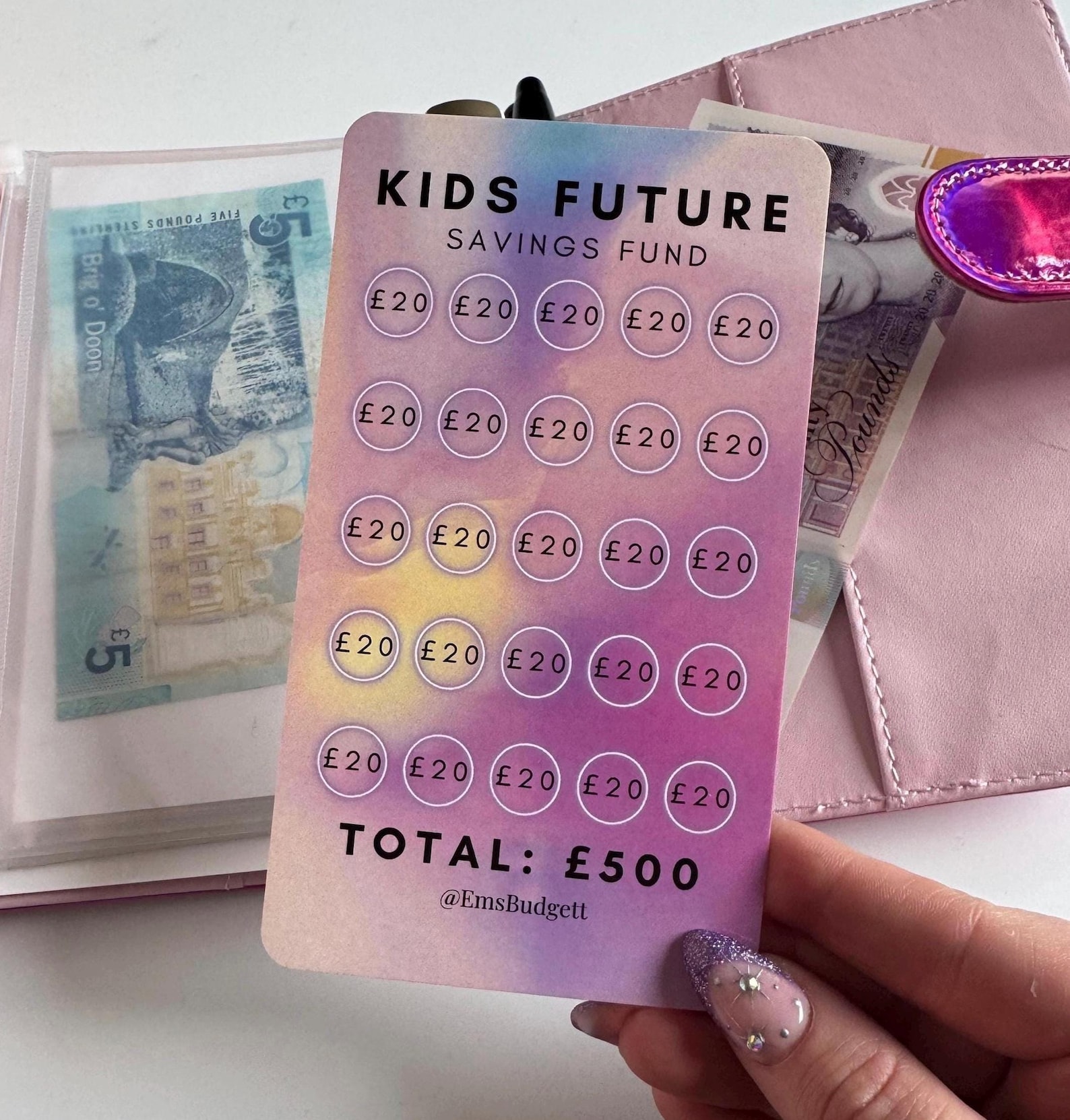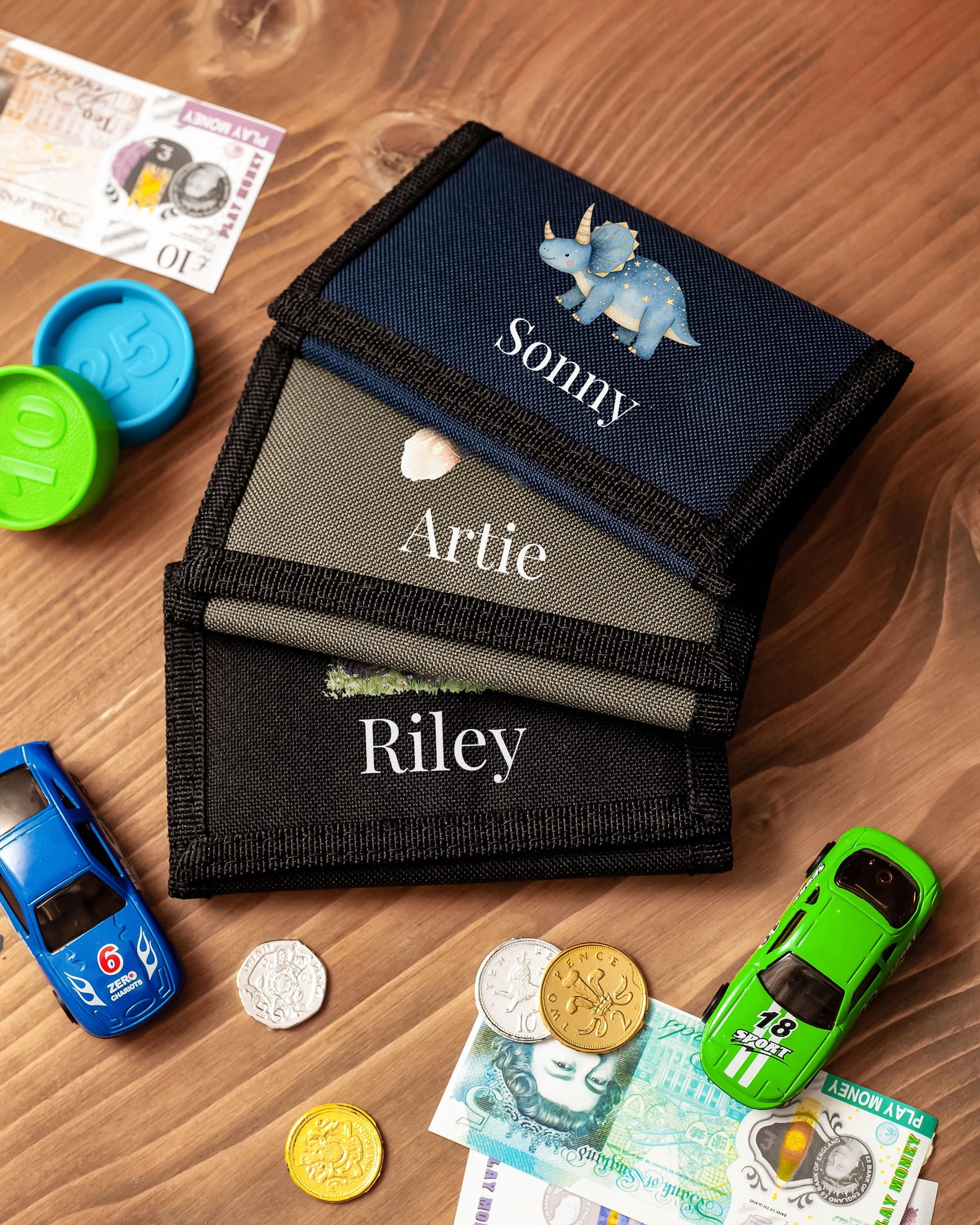Best Way to Save Money for Kids and Their Future
Posted on
Whether you already have kids, you’ve just had a baby, or you’re planning to have kids soon, then you’ll likely want to know the best way to save money for kids and their future. You know how tough it was to save for a house, your first rental deposit or your first car and insurance when you were starting your independent life, so it makes sense that you’ll want to do everything you possibly can to make your kids’ lives much easier.
Of course, this is easier said than done, especially as there could be any number of emergency costs along the way, along with the rising cost of living impacting finances and the uncertainty within the economy at times.
Still, saving for your kids' future can help get them set up in life and help them avoid common struggles which seem to plague a wide range of young people in the modern world. Whether it’s due to rising energy costs, a lack of fair pay despite their degree or a tough job market, many young people can find it hard.
We all want to provide a better future for our children. However, the cost of living is increasing, and we are all trying to save money. So how can you save for your children’s future? If you want to give them support, here are some useful ways to save money for your kids to help them on their path to independent adult life when that time comes.
Best way to save money for kids and their future (and where to find the cash to save)
I think the best way to save for kids and their futures is by starting to save money as soon as they are born, even if it's a nominal amount. What might seem small can really add up by the time your child reaches adulthood. After all, you’ve got 18 years until this day comes, that’s 216 months! The money saved each month will really add up, even if you can only save a small amount each month. Let’s explore this way of saving in more detail and also where you can find this money to save for your kids' futures.

Start saving for your children’s future sooner rather than later
You should start saving for your kids as soon as they are born, so you do not risk falling behind on savings payments or even start contributing too little too late. Having a baby is expensive, especially if you require daycare and other essentials. But you should still find a way to budget and put some money away every month. If you start now, you can generate a healthy amount of money before they turn 18 years old, and this helps you establish a strong foundation that can help them financially when they need it, whether going to university, buying their first car, or purchasing a home.
Even putting away just £10 per month into a savings account will amount to more than £2000 saved by the time they reach 18, plus whatever interest or bonuses may be added depending on the type of savings account you save in. Saving £10 per month might not seem like much, but a lump sum of over £2000 can be a great help when they need their first car or a deposit for renting a flat. They might even put it towards saving for a house. It could help with their first university costs, books, a laptop or whatever upfront expenses they might incur.
Doubling this to £20 per month, if this is affordable, will really lend them a helping hand with well over £4000 saved by the time they are 18. Looking at it as £5 per week doesn’t sound quite so bad.
We decided to save each of our children £5000 in a savings account in their own names, ready for when they are 18. This lump sum will then hopefully be used by them for something worthwhile once they enter adulthood. The accounts are in their names, so it’s their money, but we hope to encourage them to use it for something useful as they become independent and not to blow it!
Because there is obviously a risk of this, we have decided to save into our own savings accounts once our children's accounts each reach £5000. We will then have money for emergencies or when we want to help them out, but it’s not officially their money that can be wasted on whatever they want!
Hopefully, this is a good plan so they can have a starting lump sum from us as they enter adulthood, and then we can help them out every now and then when they really need it to avoid financial stress. We still want to encourage them to be independent and make their own money and financial decisions, not rely on us for money.
Although I have my own debt story as a youngster, which you may know, I never had anyone to borrow money from as an adult or to ask. Having to pay back every last penny myself and not having anyone to turn to for borrowing money meant I had to learn to finance myself as an adult and become responsible, which I think is important for true independence.
If I could have just asked for money from a parent, then I may have been even more frivolous with cash and not accepted responsibility for my actions or learnt how to budget properly. I hope my children will be financially independent too and not expect help or money lent. We can then choose to help them as a surprise when they are in times of need or for occasional treats.
For us, it’s not just about giving them a load of money, but giving them a modest starting lump sum when they turn 18 and then helping them financially on occasion during adulthood. We still want them to be financially independent and have their own financial responsibilities.

Where to find the money to save for your kids' futures
It's not a secret that the cost of living is rising. The costs of education, housing and healthcare are only going up. However, there are things that you can do to start saving money for your children's future.
Set up a direct debit or standing order as part of your regular outgoings
Saving the money as soon as it’s payday is the best way to save for whatever you are saving for, kids or otherwise! The best way to do this is by setting up a standing order or direct debit to the savings account on payday.
As the payment is automated, it goes directly out of your account, so you never notice it’s there. Work out your monthly budget and account for the savings as part of your normal bills. That way, you’ll get used to them and won’t factor them into your usual day-to-day disposable income.

Cut back on pre-kid luxuries
You may not need to cut out all luxuries, but you should analyse your budget and identify anything that you don’t consider essential. It’s pretty much a given that when you become a parent, your priorities will change both in your lifestyle choices and financial choices. You'll likely be exploring ways to save money as a parent. Usually, this saved money will go to the cost of raising children anyway, but if there’s any extra left, then it can go towards your savings for your child’s future.
Save any monetary gifts from family
Grandparents, aunts and uncles, siblings, and anyone else will be excited that you’re having a baby, and they may be happy to contribute, even if it isn’t a lot of money. Obviously, don’t ask, but some family members might give cash in cards at certain events like baby showers or gender reveal parties or even in congratulations cards when the baby arrives. Any monetary gifts can go towards your child’s savings fund if you don’t need them for immediate child-raising costs.
When the baby is born, some family members will send money on birthdays and for Christmas. Some might even ask for their bank account details when you set up a savings account so they can contribute directly to the child’s savings account. Any money sent for birthdays or Christmases, particularly when the child is a baby or very young, can be added to their savings account and can help you reach your savings goal for them.
Make extra cash at home with small side hustles
Side hustles have become a popular way for people to make extra money in recent years. They can be especially fun when you have a specific goal for the money you make from them, whether that’s paying down debt or saving for your child’s future!
To get started, you can make money online in the UK with these 60 ways I’ve personally tried and tested.
You can learn more about my favourite at-home side hustle in my matched betting blog.
There are even lots of real ways to make money from home for free!
Encourage your kids to save too
Saving for your child’s future doesn’t need to be only your responsibility. Once your child is old enough, you can teach them good money habits to encourage them to learn how to save.
This can be effective even if they are still several years away from getting their first job, and it can set them up for a better, more comfortable future.
You can also teach them the value of money, so encourage them to help around the house for some pocket money, but also teach them not to spend it all immediately.
We use the free pocket money app Hyperjar. It gives our kids a free prepaid debit card each, which we put their pocket money into via the app.
When the kids are old enough to have a phone, the kids' app lets them split their pocket money into different jars to start saving for various things.
We also encourage our kids to save part of their Christmas and birthday money now that they are older. As they are older, we don’t put it all in their savings on their behalf, as they want to buy their own presents from whoever gave them the cash, but we talk to them about the importance of saving some of it and encourage this.
Save spare change in a pot you can't open
Spare change can really add up. It's not often we spend with cash nowadays, but there are still some instances where cash is needed. We have a smallish piggy bank and we're always surprised when it's full that it holds around £50-£100 in small change!
If you are too tempted to open the pot and spend, then get a money box that has to be smashed to be opened!
This will stop you from raiding it, and you can put the saved money into your children's savings accounts once the pot is full. It's also a great way to start teaching young kids about money.
Charge them board once they are young adults and working
Charging just £100 each month can be enough to help you save for your child’s future. If they are old enough to work, asking them to help with running the household and balancing costs is something to consider, even if they don’t like it. It will help to teach them financial responsibility and prepare them for the cost of living by themself.
But here’s the catch.
The board is not actually going to you, providing you don’t need it, but into a savings account. Regardless of how much you charge them monthly, you can give that money back to them once they move out. Not only should it give them a substantial amount for a deposit or down payment, but it will also teach them how to operate on a budget, so they will maintain the spending habits they have established since they started to pay every month. Hopefully, it will help them to avoid bad spending habits.

How to maximise your kids' savings
You’ll also want to maximise the amount of money you can save for your kids. Keeping a wad of cash under the mattress is going to lose money over time due to the rising cost of inflation, so you’ll want to choose an account or a method that can grow your savings over 18 years. Here are some options.
Look for savings accounts with high-interest rates
Savings accounts with high-interest rates are a fantastic way to generate more income from the same amount of money you put away each month. Feel free to explore the wide range of options available that can make saving for your child’s future a little easier, especially if you’re trying to survive on a budget. Most banks offer a higher interest rate on children's savings accounts compared to adults!
Opt for a tax-efficient Junior ISA (JISA)
Regular savings accounts might not come with many benefits, so a Junior ISA, sometimes shortened to JISA, could be a better long-term option. You can set up a junior ISA, which allows up to £9,000 each tax year without any tax obligations.
This is a long-term option, and you should be aware that you cannot withdraw the money, as it belongs to your child. This is good news, though, if you want to ensure your children have savings ready for when they are adults, as no one else can withdraw from the accounts.
Here are the benefits of a JISA:
-
A Junior ISA is a long-term and tax-efficient way to invest money on behalf of your child.
-
In the current tax year, 2025-2026, you can save up to £9000 in a Junior ISA. This has been the same for the last few tax years, but check the current Junior ISA limit on the gov website in case it's changed.
-
Children can’t access their ISA until they are 18.
-
No one else can take the money out, as it belongs to your child.
-
There is no tax to pay on any interest, returns or dividends.
Before signing up for new savings accounts or banking products, always check TopCashback to see if you can get cashback, then add this to your kids' savings!
Consider investments
Investments can be a risky approach, particularly if you are new to investing, but they can also provide highly fruitful returns for your child’s portfolio. There are many emerging investment opportunities for you to explore when your child is born, and even a small return could be considered worth it.
You will be better off choosing investments for the future, such as green energy, and options with low-risk yields can make you feel more comfortable about any investment you make, because you don’t want to lose your child’s entire college fund.
You can choose stocks and shares Junior ISA instead of a cash Junior ISA. Or you can split the £9000 savings limit between the two if you don’t want to risk the stocks and shares so much. Obviously, with stocks and shares, your capital is at risk.

Open a children’s savings account early
One of the best ways to save for your kids is to open a children’s savings account in their name. Many banks and building societies offer special accounts for young savers, often with higher interest rates than standard adult accounts. This can be a simple and effective way to start saving for a baby’s future, as you can deposit small amounts regularly and watch the balance grow over time.
These accounts are usually very flexible, allowing parents or grandparents to pay in whenever they want. They’re also a good tool to help children learn how to save money themselves. Once they’re old enough, you can involve them by showing them their bank book or online account, encouraging them to understand the value of saving.
By setting this up early, you make saving a normal part of family life, and your child benefits from years of steady contributions and compound interest.
Consider Premium Bonds for children
Another option parents in the UK sometimes use is Premium Bonds. Instead of earning interest, the money entered into Premium Bonds goes into a monthly prize draw with tax-free winnings. While there’s no guaranteed return, it’s a safe place to put money as the original capital is secure.
For children, Premium Bonds can be a fun way to get them interested in money and savings. They may enjoy checking if they’ve won any prizes each month, which can spark early enthusiasm about financial planning. While Premium Bonds might not be the best saving plan for every child, they can be used alongside other methods, such as Junior ISAs or savings accounts, to diversify how you save.

Saving for education costs
When thinking about the best way to save for your child’s future, education is often one of the biggest expenses. Even if university tuition fees are covered by student loans, there are still living costs, books, laptops, and transport to consider. Putting money away for children with these costs in mind can make a big difference when the time comes.
Parents might aim to save enough to cover at least the first year of university living expenses, giving their child a smoother start. If higher education isn’t their path, the money could still be used for vocational training, an apprenticeship, or other courses that will support their independence.
Use workplace benefits if available
Some employers now offer savings schemes or workplace ISAs that allow parents to save directly from their salary. If you or your partner has access to such benefits, they can be an easy and disciplined way to build up savings for children’s futures.
Workplace saving plans sometimes come with matched contributions, similar to a pension, which effectively gives you free money towards your child’s future. If this is an option, it could be one of the best savings plans for a child, as you’re boosting your contributions without any extra effort.
Teach kids how to save money themselves
While parents saving for their child’s future is vital, teaching children how to save money themselves is just as important. From an early age, children can learn about saving through pocket money, piggy banks, or apps designed for kids. Encouraging them to save for something they want — whether that’s a toy, a bike, or a gaming console — teaches discipline and shows them the benefit of putting money aside rather than spending it immediately.
As they grow older, you can encourage them to set bigger savings goals, such as saving for their first car. Talking openly about money and showing them different ways to save and invest will prepare them for financial independence as adults.

Personalised Children's Wallet
Final thoughts on the best way to save money for kids and their future
In the modern world, people are finding it increasingly difficult to save for their children’s futures. This is because of the rising costs of living and inflation that have been happening in recent years.
There are many ways you can go about saving for your child’s future. You could start by looking at your current expenses and see how you can cut back on them. You could also look at ways to make more money like taking up a small side hustle at home. There are lots of ways for mums at home to make money.
You can also attempt to maximise your savings by choosing a high-interest savings account or considering a stocks and shares Junior ISA.
Every parent wants to look out for their child’s future. While you can give them a place to live and somewhere to eat for the first quarter of their life, they’ll eventually want to get out of the house and live their life. Although you hope they can stand on their own two feet, you also want to give them as much support as possible, and a small nest egg to help them get set up is a great way to do it.
Roundup of the best ways to save money for kids and their future:
This article discusses the best ways to save money for your kids and their future. Whether you're a new parent or planning for your child's financial security, it's essential to have a plan in place. Here are the key points:
- Start Early: Begin saving for your children as soon as they are born, even if it's a small amount. Over time, these contributions will accumulate, providing a solid financial foundation.
- Set Up a Standing Order: Automate your savings by setting up a standing order or direct debit on payday. This ensures you consistently contribute to your child's savings.
- Cut Back on Luxuries: Analyse your budget and cut out non-essential expenses. Redirect the money saved towards your child's future.
- Utilise Family Gifts: Monetary gifts from family members can be put into your child's savings account, helping you reach your savings goals.
- Explore Side Hustles: Consider engaging in side hustles to generate extra income dedicated to your child's savings.
- Teach Financial Responsibility: Encourage your children to save and manage their money wisely from an early age. Use tools like pocket money apps to help them save and budget.
- Save Spare Change: Collect spare change in a dedicated pot, which can later be deposited into your child's savings account.
- Charge Board: When your children become young adults and start working, charge them a monthly board fee, which goes into their savings account.
- Maximise Savings: Look for high-interest savings accounts or consider tax-efficient Junior ISAs to grow your child's savings over time.
- Consider Investments: Investments can yield fruitful returns but come with some risk. Consider them as part of your child's financial portfolio.
- Open a Children’s Savings Account: Many banks offer special accounts for young savers with higher interest rates, helping money grow steadily over time.
- Consider Premium Bonds: A safe place to save where the money is secure, and children can enjoy the monthly prize draw.
- Save for Education Costs: Put money aside to help cover university or training expenses such as books, living costs, or equipment.
- Use Workplace Benefits: Some employers offer savings schemes with matched contributions, giving parents an easy way to build funds for their child’s future.
- Teach Kids to Save: Encourage children to save part of their pocket money or gifts, building good financial habits from a young age.
Saving for your child's future is challenging due to rising costs. However, by following these strategies, you can provide them with financial support and a nest egg to help them get started in adulthood.
Before you go...
Don’t forget to subscribe to our newsletter for the best free money offers, money-making and money-saving tips we discover!


